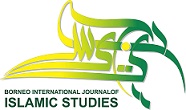Widows’ Rights and Customary Law: Addressing Responsive Law to Divorce Cases of Tolaki Community in Indonesia
Abstract
This article discusses the tendency to ignore women's rights in customary law practices in the Tolaki tradition, Southeast Sulawesi, Indonesia. Women often become a victim of deprivation of rights by customary legal tradition, such as ex-wife rights in post-divorce and the right to make choices. This article aims to discuss how widows are protected by custom by offering responsive law as a process for resolving marriage and divorce through customary decisions. Normatively, legal divorce settlements can only be processed through religious court institutions. Using a normative-empirical approach, this study has three significant findings. First, the process of resolving family conflicts involves complying with applicable customary provisions that must be obeyed by the Tolaki community. Second, tradition is not the only basis for consideration in the elements for making customary decisions. Third, responsive law can theoretically direct the lives of the people of the Tolaki traditional community by providing recommendations for considerations that are in accordance with the social structure and community relations related to the application of customary law. However, according to custom, widows who are not resolved before a court hearing can be followed up again to immediately register their case in a religious court in order to minimize neglect of the right to terminate a unilateral divorce and the rights of the widow and children after divorce. Under these conditions, offering responsive law is a strategy to balance rights in divorce cases bound by state legal norms.
References
Baldwin, Kate, And Katharina Holzinger. “Traditional Political Institutions And Democracy: Reassessing Their Compatibility And Accountability.” Comparative Political Studies 52, No. 12 (2019): 1747–74. Https://Doi.Org/10.1177/0010414019852686.
Barak-Corren, Netta, And Yael Kariv-Teitelbaum. “Behavioral Responsive Regulation: Bringing Together Responsive Regulation And Behavioral Public Policy.” Regulation And Governance 15, No. S1 (2021): S163–82. Https://Doi.Org/10.1111/Rego.12429.
Cuddy, A. J., E. B. Wolf, P. Glick, S. Crotty, J. Chong, And M. I. Norton. “Men As Cultural Ideals: Cultural Values Moderate Gender Stereotype Content.” Journal Of Personality And Social Psychology 109, No. 4 (2015): 622. Https://Doi.Org/Https://Psycnet.Apa.Org/Doi/10.1037/Pspi0000027.
Fonchingong. “Optimizing Community Based Development Through Sage Tradition In Cameroon.” Global Social Welfare 5, No. 3 (2018): 145–53. Https://Doi.Org/Https://Doi.Org/10.1007/S40609-016-0052-6.
Godley, J. “Everyday Discrimination In Canada.” The Canadian Journal Of Sociology/Cahiers Canadiens De Sociologie 43, No. 2 (2018): 111–42.
Haryanto, Joko Tri. “Relasi Agama Dan Budaya Dalam Hubungan Intern Umat Islam.” Smart 1, No. 1 (2015): 41–54. Https://Doi.Org/10.18784/Smart.V1i1.228.
Innes, Hanna Mac, Kieran Walsh, And Torun Österberg. “The Inverse Care Law And The Significance Of Income For Utilization Of Longterm Care Services In A Nordic Welfare State.” Social Science And Medicine 282, No. September 2020 (2021). Https://Doi.Org/10.1016/J.Socscimed.2021.11412.
Iryadi, Irfan, Teuku Syahrul Ansari, Jumadil Saputra, Teuku Afrizal, And Ahmad Syauqi Thirafi. “The Role Of Jurisprudence As Form Of Legal Prescriptions: A Case Study Of Notaries In Indonesia.” Wseas Transactions On Environment And Development 17 (2021): 75–80. Https://Doi.Org/10.37394/232015.2021.17.8.
Kleczkowska, Agata. “Searching For Armed Non-State Actors’ Role In The Process Of Formation Of Customary Law.” International And Comparative Law Review 19, No. 2 (2019): 97–115. Https://Doi.Org/10.2478/Iclr-2019-0016.
Lolaroh, Alan Christian. “Tinjauan Hukum Kedudukan Janda Dan Duda Menurut Hukum Waris Adat.” Lex Privatum Vi, No. 9 (2018): 52–63.
Mahela, Om Prakash, Neeraj Gupta, Mahdi Khosravy, And Nilesh Patel. “Comprehensive Overview Of Low Voltage Ride Through Methods Of Grid Integrated Wind Generator.” Ieee Access 7 (2019): 99299–326. Https://Doi.Org/10.1109/Access.2019.2930413.
Mardalena Hanifah. “Perkawinan Beda Agama Ditinjau Dari Undang-Undang Nomor 1 Tahun 1974 Tentang Perkawinan.” Soumatera Law Review 2, No. 2 (2019): 297–308.
Netto, Luísa. “Criteria To Scrutinize New Rights: Protecting Rights Against Artificial Proliferation.” Revista De Investigacoes Constitucionais 8, No. 1 (2021): 11–75. Https://Doi.Org/10.5380/Rinc.V8i1.82654.
Nonet, P., And P Selznick. Law And Society In Transition: Toward Responsive Law. New Brunswick., 2001.
Perrin, Nancy, Mendy Marsh, Amber Clough, Amelie Desgroppes, Clement Yope Phanuel, Ali Abdi, Francesco Kaburu, Et Al. “Social Norms And Beliefs About Gender Based Violence Scale: A Measure For Use With Gender Based Violence Prevention Programs In Low-Resource And Humanitarian Settings.” Conflict And Health 13, No. 1 (2019): 1–12. Https://Doi.Org/10.1186/S13031-019-0189-X.
Poespasari, Ellyne Dwi. “Dispute Settlement Norm Of Estate Distribution On Adat People Of Minangkabau (West Sumatra).” Jurnal Dinamika Hukum 17, No. 3 (2017): 308–13. Https://Doi.Org/10.20884/1.Jdh.2017.17.3.1284.
Copyright (c) 2023 Kamaruddin Kamaruddin

This work is licensed under a Creative Commons Attribution 4.0 International License.


.png)






